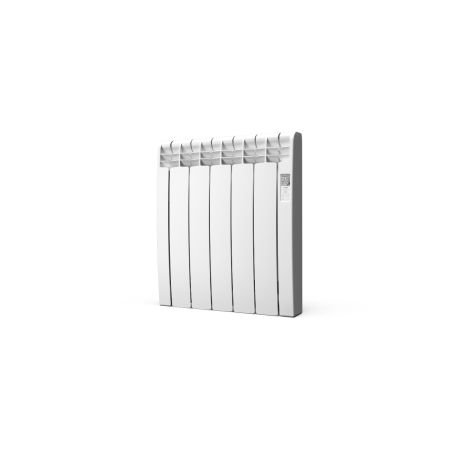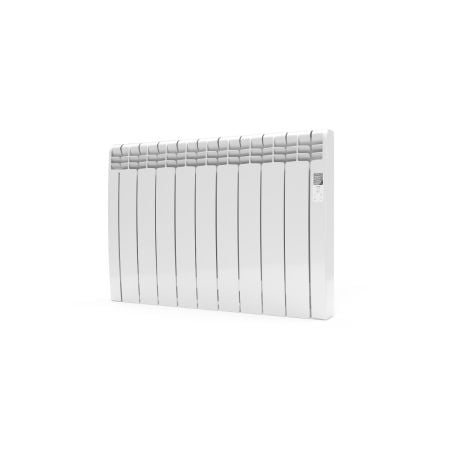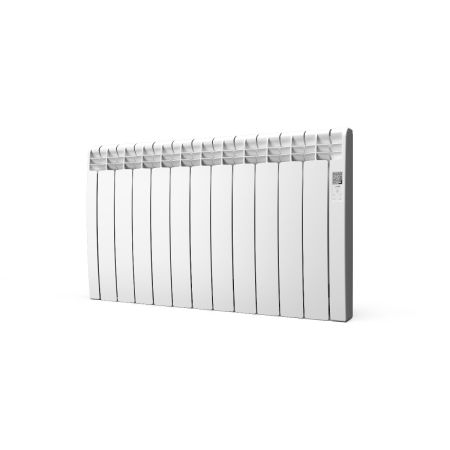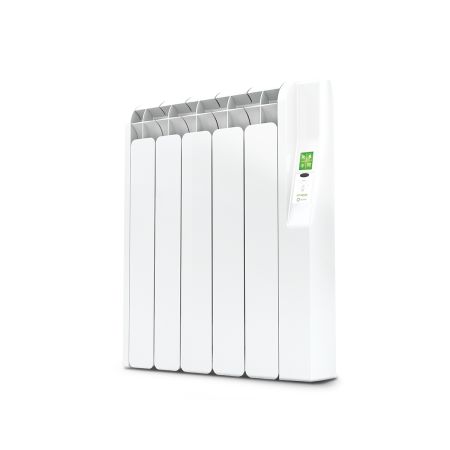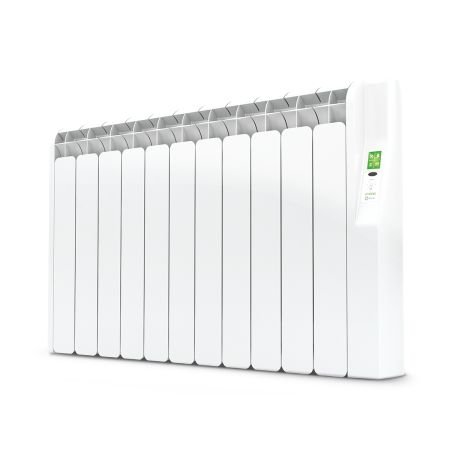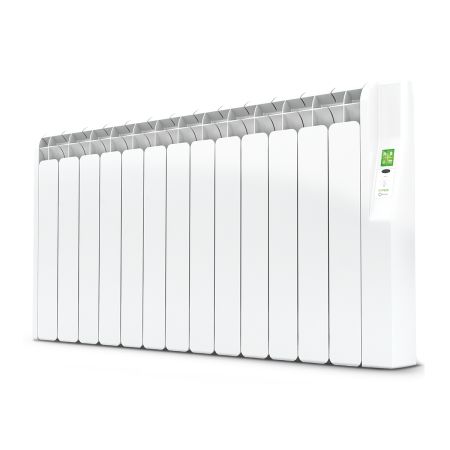Rointe Electric Radiators
Packed with energy-saving features, Rointe Electric Radiators have a high purity aluminium body with fireproof PC/ABS side closures and superior thermal fluid (oil-filled) for faster heat-up times. It has an optimised design for natural convection, plus low consumption technology with SMD electronics to maximise efficiency
-
£324.84 £270.70Add to Cart
-
£413.27 £344.39Add to Cart
-
£461.16 £384.30Add to Cart
Electric Radiators vs Panel Heaters
The Panel Heater Conundrum
As you search the electric heating market for new ways to heat your home, you will probably encounter something puzzling when you compare different websites. Whilst sites like ours are selling energy efficient electric radiators in the £150-£200 bracket, competitors are advertising products which look very similar for as little as £89.99. Smart, slim line white heaters advertised as “panel heaters” or “convection heaters” look just like our ATC Varena Electric Thermal Radiators Or Ascot Thermo-Fluid Electric Radiators – but they seem to be available for almost half the price.
So why wouldn’t you choose panel heaters? Time to simplify some industry jargon. What are panel heaters? Are they radiators? What makes them different from our energy efficient electric radiators?
What makes a radiator a radiator?
As it happens, “radiator” is probably one of the most misused words used in the heating industry. Technically, we should only call a heater a radiator if it uses radiation as its primary method of delivering heat.
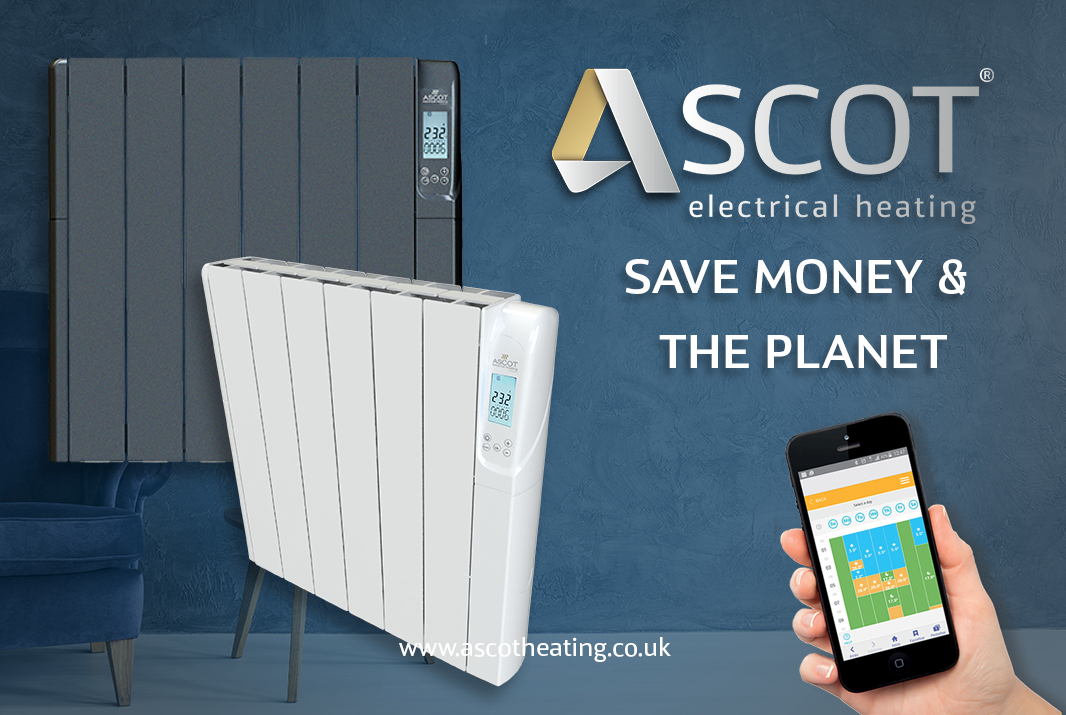
Radiation is the same form of heat given off by the sun – heat which travels in a direct line from the heat source to warm people and objects directly, regardless of the temperature of the air. However, in practice, the word “radiator” is used widely to refer to many different heating products. Some people even use the word radiator to refer to storage heaters, which give off heat purely by convection. But the electric radiators you’ll find at Alert Electrical are all radiators in the correct sense: they use a combination of radiated and convected heat to provide efficient and effective home comfort heating.
What are panel heaters?
Panel heaters are low-cost products for the home which heat purely by convection. They are sometimes described erroneously as “panel radiators”, or more accurately “convection heaters”, heat rooms by warming the air. Hot elements in the panel body heat the air as it circulates around the room, keeping the room’s occupants’ cosy by surrounding them with warm air. Because the elements which heat the air are unenclosed, they are cheaper and easier to manufacture than our electric radiators. Whilst convection heaters can be a fast and effective source of heat, they also come with three significant disadvantages which you should consider before choosing this cheaper option.
Panel heaters are less efficient than electric radiators.
Convected heat is inherently less efficient than radiated heat. Radiation heats people directly, transferring energy in one straight-forward transaction. Convection heat is more convoluted. Panel heaters transfer heat to the air which in turn transfers heat to the people in the room. This is much less efficient. Heating by radiation effectively cuts out the middleman in the convection heating process, allowing less scope for energy loss. This means that you will need to use more power to heat your room with panel heaters than you would with energy efficient electric radiators. This in turn makes them more expensive to run than radiators. If you use these products frequently, any initial savings you made by choosing it over an electric radiator would quickly be outweighed by the greater running costs.
Panel heaters are not suitable for constant use.
The unenclosed elements which make panel heaters cheap to produce have some unfortunate disadvantages. Because the hot elements come into direct contact with the air, any dust circulating around the room can burn and leave sooty deposits on the wall. Over time this can cause wall blackening and damage to paintwork. Circulating dust particles can also agitate allergies. This means that they should not be used as your primary home heating source. The good news is that wall-blackening only becomes a problem for panel heaters if they are used every day; if you have one for portable use, or for heating a secondary space like a spare room, wall blackening won't be a problem. Wall-blackening is an issue common to all convection heaters – no matter what the brand, price, or style.
Panel heaters are less durable than electric radiators.
Because these products are less efficient than electric radiators, they must work much harder to heat home spaces. This can give them significantly shorter lifespans than our energy efficient radiators. Their lifespans often suffer from cheaper manufacturing designed to satisfy a demand for low priced heating. Again, this is only a problem if you intend to use panel heaters as your prime source of heat – a shorter lifespan will not be an issue in rooms you only use occasionally.
When should I buy an electric panel heater?
There is no question that energy efficient electric radiators are superior to electric panel heaters – and certainly a more economical choice for principal home heating. However, we do think there is a very important place in the market for these products. We know that kitting out an entire house with electric radiators is an expense which can quickly add up. Cheaper panel heaters give you a low-cost option which still allows you to effectively heat those less visited spaces. Used infrequently, these heating products will not wear out quickly and the running costs will not make a significant impact on your monthly bills. That is why we have the Ascot Wi-Fi Enabled Thermo-Fluid Electric Heaters. The Ascot Wi-Fi Enabled Thermo-Fluid Electric Heaters represents the apex of design – with a stunning contemporary design and extensive programming features which allow you to control the heating in your spare rooms as well as the heating in the rest of your house.
For more information about our products, advice on the best for your property, and a free quote,
give our expert sales advisors a call on 03339969999


